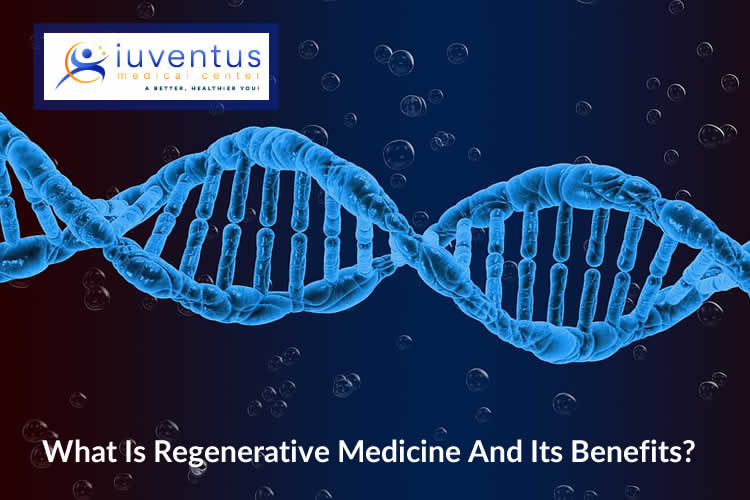What is Regenerative Medicine and its Benefits?

Regenerative Medicine or Stem Cell Therapy is that branch of science which deals with replacing or reengineering tissues, cells or organs to restore normal human functions. This field holds a promise of repairing severed tissues, cells or organs with its own repair mechanisms to functionally heal what once was irreparable tissues and organs. Regenerative Medicine is a branch of science where tissues, cells and organs are set straight or healed.
Stem Cells are the body’s raw material from which other cells are derived. Under the right conditions, stem cells go on to form daughter cells.
Regenerative Medicine is also growing tissues and organs in the laboratory and implanting them when the body ceases to heal itself. If a tissue or organ is obtained from the person’s own body, it would remove the perennial problem of shortage of cells or tissues for repairing broken tissues or cells and the problem of organ transplant rejection. Some of the regenerative medicine involves the use of stem cells. Examples include stem cells or progenitor cells through directed differentiation (cell therapies) approach. Being concise, Regenerative Medicines include generation and use of therapeutic stem medicines. Stem Cells can be guided into becoming specific cells that can be used to regenerate or repair damaged tissues or cells.
People who may benefit from stem cell therapies include people suffering from spinal cord injuries, Parkinson’s Disease, Alzhemier’s disease, Type 1 Diabetes, Stoke, burns, cancer and osteoarthritis. Stem Cells hold the potential to grow into new tissue for use in transplant and regenerative medicine. These daughter cells either become new stem cells or specialized cells with more specific functions such as blood cells, brain cells, heart muscle cells or bone cells. No other cell in the body other than stem cells has the natural ability to generate new cell types. The goal of regenerative medicine is to treat previously untreatable diseases and injuries, Scientific research is making treatment available for clinical use. Regenerative medicine has the potential to impact the whole realm of health care such as heart disease,emphysema, and diabetes. Regenerative medicine employs many traditional cells to replace or govern and replace the natural healing process of the body.
Regenerative Medicine is an emerging field that seeks to combine the knowledge and details of various disciplines to heal impaired functions in the body. Its function is not only to heal the irreparable or diseased functions in body but to provide elements required for invivo repair. There are a hundred million people in the United States whose health is under constant deterioration and are needing stem cell therapy immediately. The diseases include diabetes, neurodegenerative diseases, cancer and burns.
In Retrospect, it can be summed up that regenerative medicine or stem cell therapy has distinct advantages to heal the hundred million patients lying in United States and many more in other countries by in vivo approach (in living organisms). There is an acute shortage of stem cells in storage and hence benefits of regenerative medicine are limitless.
